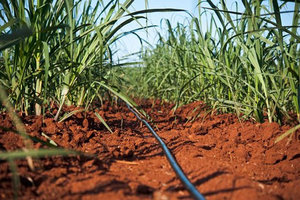According to a recent White House press release, findings from the U.S. National Climate Assessment call for urgent action to be taken by farmers as well as the broader population to fight climate change and build a sustainable future.
The assessment, which is said to be the most comprehensive scientific assessment ever generated of climate change, breaks down its effects on various regions of the United States, including those areas that are heavily agriculture-focused. The report shows the Midwest’s agriculture lands, forests, Great Lakes, industrial activities, and cities are all vulnerable to climate variability and change. Longer growing season and rising carbon dioxide levels increase the yields of some crops, although these benefits are likely to be offset by the occurrence of extreme events like droughts and floods.
A similar report was given for the Great Plains, as variable climate conditions are said to already stress communities and cause billions of dollars of damage. Additionally, rising temperatures lead to increased demand for water and energy, impacting agricultural practices.
In response to the White House assessment, Agriculture Secretary Tom Vilsack said in a statement, "The National Climate Assessment confirms that climate change is affecting every region of the country and critical sectors of the economy like agriculture. This assessment provides an unprecedented look at how the changing climate and extreme weather impact rural America. At USDA, we're working closely with our nation's farmers, ranchers and forest landowners to help them manage the negative impacts of climate change, reduce their energy costs, and grow the bioeconomy to create jobs in rural America."
The U.S. National Climate Assessment is calling for the American public to take action to fight climate change, especially in areas of the country like the Midwest and Great Plains that are critical to our nation’s agricultural production.
